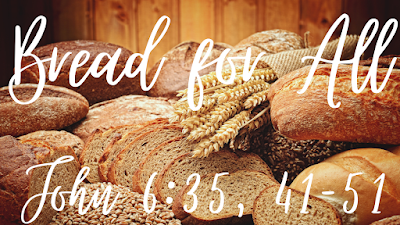A House in the Hills - Isaiah 2:1-5 (Advent 1A)
I've been to New York several times. The first time I went to New York, I was with a bunch of youth group kids from our district and we were there for a seminar regarding Peace and Justice. We got to tour the UN building, which I thought was really cool. But a couple of the best things that I saw were actually outside of the building.
In the gardens, there is a statue (which was once bronze I've been told, now made green) of a human raising a hammer to a bent sword they're pushing into the ground. It looks a little strange, but the plaque said "Beating Swords into Plowshares" and it's was a gift from the Soviet Union to the UN back in 1959. The reference comes from our text this morning. The other is across the street from the UN Building. There's a small park, and in the park is a huge wall with Isaiah 2:4 carved into it: "They shall beat their swords into plowshares, and their spears into pruning hooks; nation shall not lift up sword against nation, neither shall they learn war any more". This park is hardly bigger than the entirety of my house lot, but it's known as the Isaiah wall.
It's important to have vision for the future. Our scripture today has words that seem aspirational more than practical. But the context here is they are from a vision that Isaiah is having. So - the Lord is speaking to Isaiah through a dream, and the Lord is showing the future. There's a disagreement among scholars in verse two whether the first phrase is "in days to come" or "in the end days", but it is my belief that Isaiah is not talking about an apocalyptic situation, or the whole thing might be different. So - we are going to read that as "in future days", not "at the end times" which I feel like may trigger a whole different vibe to the rest of the dream. It's kind of vague, but it's anticipating a radical change of their current reality.
But, this vision that is offered for the future - in the first words for the church to hear in a new year, that the Temple (the holiest ground) will become the highest ground. The Lord wants to have a house in the hills! From this place, it is a great asset to that community. Having a house in the hills has been desirable for centuries. As a matter of security, building in a high location is a defensive advantage because the visibility is greater, so the enemy has fewer places to hide. Secondly, houses on the hill see more light than houses in a valley. Thirdly, if you live on high ground, the house doesn't need to worry about being flooded.
But lastly, it becomes a location of wonder and prestige. You have beautiful views, and those who literally look up and wonder who could build on such a location. People will see it and want to flock there. Imagine looking out the windows from one of those houses from the cover of our bulletin!
The Lord building a house in the hills, and everyone wanting to join, shows that our journey of faith has a destination. Those who read on and in verse four, the first phrase: "[The Lord] shall judge between the nations, and shall arbitrate for many peoples;" this is a vision for not just Isaiah's people, but for the wider community, a multicultural, multiracial, multilingual experience. Those might see God as a judge and arbitrator could be a little scared of the result, but we must remember, God's judgment may not be what human judgment is, and as an arbitrator, that's a different role as well. For those who have not been through it, arbitration is an alternative legal dispute resolution process. The purpose of arbitration is to have a trained outsider who negotiates a settlement between the parties, so that terms can be sculpted to find agreement (where it may exist). It builds on where there may be trust, and that trust is fundamental to making an agreement that satisfies both parties. It's a much more peaceful and fluid way to get agreements than a judge making a decree without really considering more nuance of the issues. In our case here, God is not only speaking, but what - will listen too. God will listen to the disputes, the grievances, the heartbreaks of the nations. To make peace, we need to be heard, and so does God. In making of peace, the gift God gives us is justice.
Even the word "mediate" used here can also be translated "let us argue it out". Sometimes justice does not come easy, nor painlessly. In deep grievances, like maybe some of you heard over this Thanksgiving weekend, it may take hearing about all the issues of disagreement to find where common ground can be cleared to build from.
Therefore, when using the imagery of beating swords into plowshares, you take the tools of death, war and division, and through the beating of words and ideas, you can transform them into useful tools of life, growth, and rebirth. This vision of Isaiah is, as Walter Brueggeman wrote, "an act of imagination that looks beyond the present dismay through the eyes of God, to see what will be that is not yet. That is the function of promise (and therefore of Advent) in the life of faith. Under promise, faith sees what will be that is not yet."
When will we realize that in our current context, the idea of melting down our guns and weaponry to give us new shovels and other tools to grow and flourish, it can transform everything - we need to be careful to realize that our God is a God of peace, not of division and strife. God wants to reconcile not only all of us to his glory and he loves us. God wants us to be in relationship with one another. Advent is a time to look for God's wonder in places we may not normally look for it. The House of the Lord that we are all looking for is less of a physical place than a place in our hearts for God to live in; the point where heaven and earth intersect; where the love, hope and joy of God can flow out and be seen by all. It can be a radical transformation, and radiates in every direction.
People will be drawn to the source, not the vessel. It may feel like it, but we must keep that in check. Those being pulled in are looking for the divine connection, because they may also be feeling a God-shaped hole inside of them. How radical that is! Imagine how wild that would be. Instead of lining up at all hours of the day on Black Friday for the latest and greatest of what man has made, the church would be the place to have lines stretching around the block. The church needs to be a place where people can find that love, grace, and hope; not judgment, closed minds and closed hearts. Here, Isaiah is having this vision where one day, we don't have to beg for spiritual scraps and remembrances of a world past, but where God has been, is, and always will be. Isaiah says that peace that we're seeking is from instruction on God's word. As we all can
We will be seeing plenty of visions of what the world sees as the good life in the next few weeks. Most of those all stream from an idea that you are incomplete with the life you have, that you can't live without whatever corporate entity is selling. But you know, each of us need to be able to speak to that vision that God has given.
When the vision is able to be shared, and it is one of hope - a message that is sorely missing in our oversaturated world - I think it would help disarm those who want to tear everything down. When disarmed, maybe we can take those weapons they've held for so long, and as Isaiah talks about, beat them into plowshares and other tools for life. Like the weapons, people can be transformed when focused on building life, and in that hope and justice need to be focused.
The park across the street from the UN that I spoke about a few minutes ago was named for Ralph Bunche, who was the first African-American recipient of the Nobel Peace Prize in 1950 for his work as a mediator in arranging a cease-fire in the Israeli-Palestinian war in 1948. He was a professor at Harvard as well, and a lifelong advocate for education and civil rights. For those wondering, yes - he is the namesake of the local Fort Wayne Community Schools Montessori school as well. But still, this mediator and peacemaker transformed the world and gave a way for justice to be not only envisioned, but took action on to bring those gifts into reality.
In the end, we can be so focused on the next four weeks in getting "just the right gifts" or even "perfect gifts" for those we love and others, maybe we instead we can seek hope in the impossible of a baby who came to embody it. We need to see the gifts that cannot be wrapped and be ready to not only find a home for them within us, but allow the light of that home to glow and light up the world around us, and being safe refuges for those who have no other place to go.
Amen.




Comments
Post a Comment